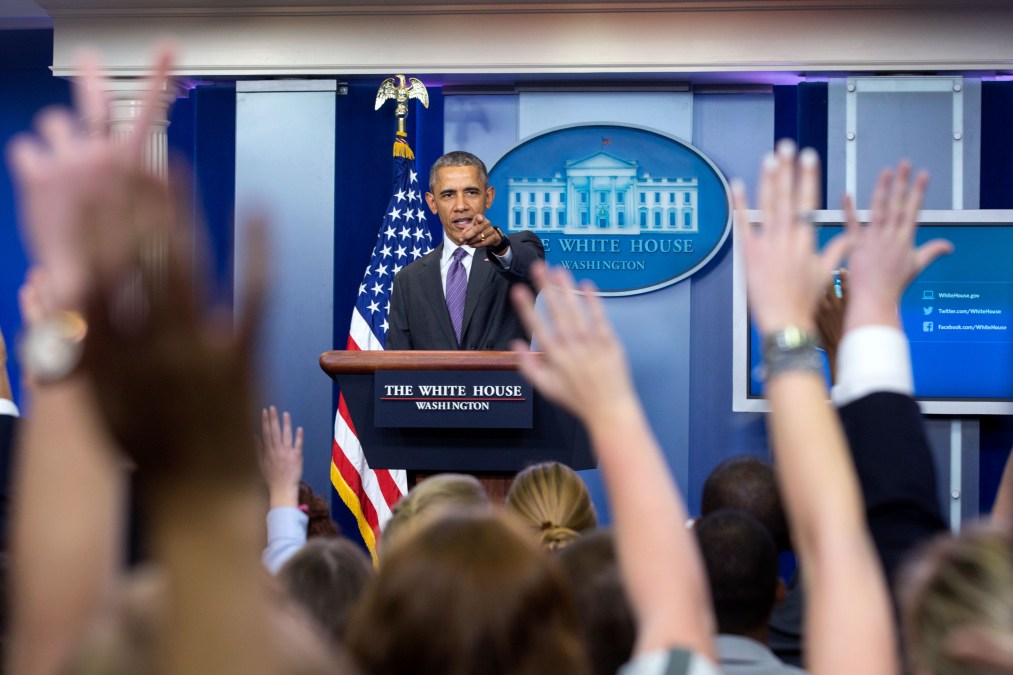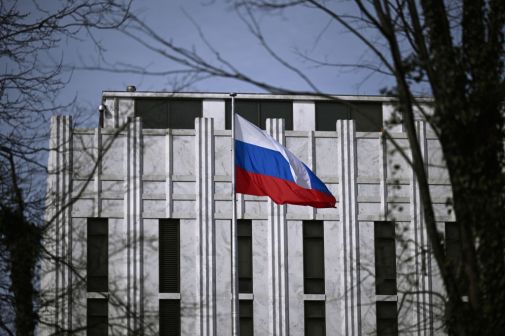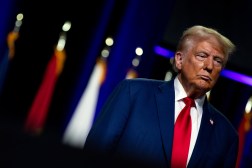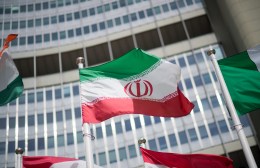Obama: U.S. didn’t stall its response to Russia hacking

The U.S. didn’t stall in its response to Russian cyberattacks during the election campaign, but rather took care not to politicize the issue and acted on the basis of consensus among the intelligence agencies, President Barack Obama said Friday at his end-of-year press conference.
The president said he had ordered intelligence and law enforcement agencies to privately brief Congressional leaders and get to the bottom of the hacking as soon as it became public at the beginning of the summer.
“Once we had clarity and certainty around what in fact had happened, we publicly announced that the Russians had hacked the DNC,” he said, noting that the Oct. 7 announcement had come not from the White House but from the Department Of Homeland Security and the Office of the Director of National Intelligence. He added that his first concern had been the need for even-handedness and the importance of “not do[ing] the work of the leakers for them by raising more and more questions about the integrity of the elections.”
“In this hyper-partisan atmosphere,” he said, noting the charged political environment surrounding the election, “I wanted to make everybody understood we were playing this thing straight … And that’s exactly how we should have handled it.”
He declined to say directly whether he believed Russian President Vladimir Putin had personally ordered the hacking, which experts say went hand-in-hand with a disinformation campaign of biased or totally fake news stories spread by bot armies on twitter and other social media sites.
“This happened at the highest level of the Russian government,” he said. “Not a lot goes on there without Putin’s say-so.”
Obama said when he met Putin in China early September, “I told him to cut it out.”
He said the Russian campaign demonstrated the challenges the U.S. faced in cyberspace, where every government department, companies of all sizes and major non-profits or other organizations were facing hacking attacks “every day.”
“That’s why I’ve been obsessed over the past eight years with how do we upgrade our cybersecurity systems,” the president said.
Obama blamed U.S. political polarization — and the growth of partisan journalism — for the success of the Russian campaign. “This is not some elaborate complicated espionage scheme,” he said. The reason that “internet misinformation from foreign countries can be released into the political bloodstream” is because it resembles so much of the partisan reporting and commentary already out there, he explained.
“Our vulnerability … is directly related to how divided, dysfunctional and partisan our political system is.”
Earlier Friday, Obama had vowed to respond to Russian efforts to interfere with the U.S. election. “I think there is no doubt that when any foreign government tries to impact the integrity of our elections that we need to take action. And we will — at a time and place of our own choosing,” he told NPR.
“Some of it may be explicit and publicized; some of it may not be.”
But his remarks only served to underscore the challenges Washington faces in combatting this new form of “warfare short of war” from Moscow.
“The U.S. government is still pulling together how you want to address these issues,” White House cyber czar Michael Daniel told CyberScoop Thursday when asked about the U.S. response.
He warned that “the effort we have seen by the Russians is a very broad one to undermine confidence in the democratic system.”
“This is not new,” he said, “The Russians have been doing this for a long time and cyber simply provided them with a new vector to do this … Faster, less visible and arguably with a greater reach.”
He noted that the U.S. government “saw no evidence, on election day itself … that there was interference with … election infrastructure.”
“This was an influence campaign,” rather than an attempt to hack the election, he said.
With national election contests next year in Germany and France, and the U.S. itself on a two-year cycle, Daniel warned that “This is not the last time we’ll see this.”
And it’s not the first time, either, according to Alina Polyakova, the deputy director of the Dinu Patriciu Eurasia Center at the Atlantic Council. “For the last ten years,” she said, Moscow had been engaged — largely within what Russians call their near abroad — in “a massive campaign of unconventional warfare.”
Ukraine, Georgia and Estonia had all been subject to cyber attacks within the last decade, she noted. Recent efforts, including the one in the U.S. had “expanded those tactics into a broader toolkit of influence operations” including dumping confidential communications and running disinformation campaigns.
The president’s comments Friday came as partisan bickering peaked about the exact parameters of the Russian campaign — which involved the dumping of hacked confidential email from senior Democratic Party officials and the promotion of fake news stories by bot armies on social media.
“Mr. Trump obviously knew that Russia was engaged in malicious cyber activity that was helping him and hurting Secretary Clinton’s campaign,” White House Spokesman Josh Earnest told reporters.
Senior Trump adviser Kellyanne Conway hit back on Fox News, calling Earnest’s comments “incredibly disappointing to hear from the podium of the White House press secretary.”
Asked about the back-and-forth, Obama said, “There hasn’t been a lot of squabbling. What we’ve said is the facts.”
The need to discover exactly who did what — and make as much of it public as possible without compromising intelligence sources and methods — “shouldn’t be a partisan argument,” he said.
Nor should it be seen as something the U.S. has to fight alone, other officials stressed.
The combination of deniable cyberattacks with an amplification chamber of automated social networks bots and witting and unwitting media partners amounts to a major challenge to all the world’s democracies, said Daniel at a transatlantic forum organized by the Carnegie Endowment and Microsoft.
The era of the social web, when every netizen is their own fact checker, presents unique challenges for a democratic society, said Daniel.
“We as governments and we as societies have figure out how we deal with influence operations,” he said.
“This is, in my view, a continuation of the trends that we have seen of nation states and other learning that they can pursue their aims and goals through cyber operations, just as they can in other ways and we have to up our game as a response,” he said.






